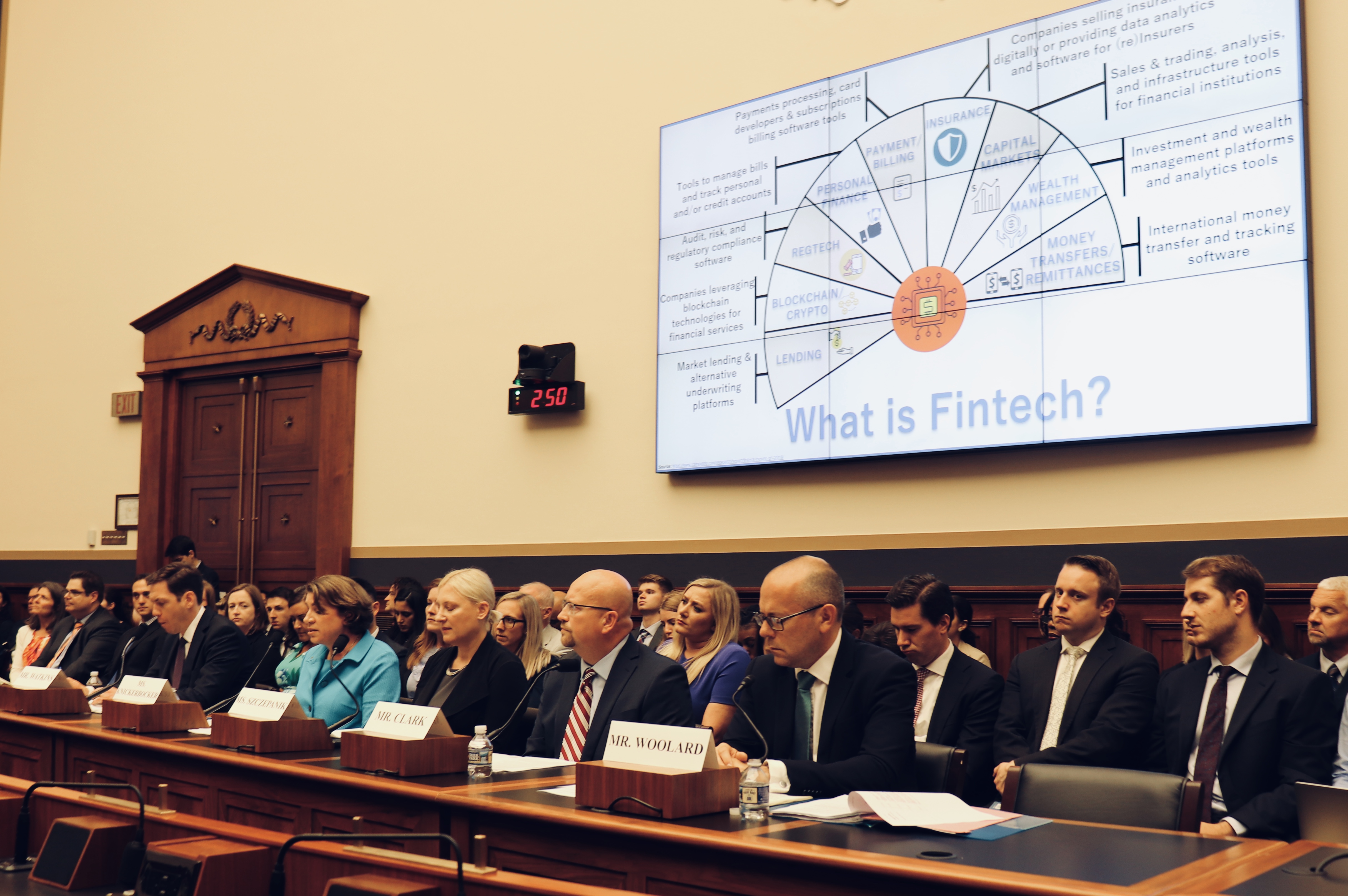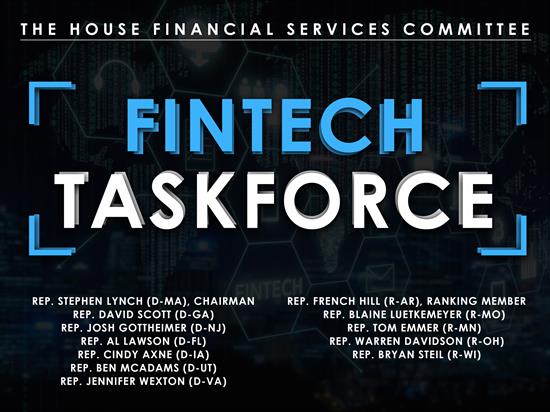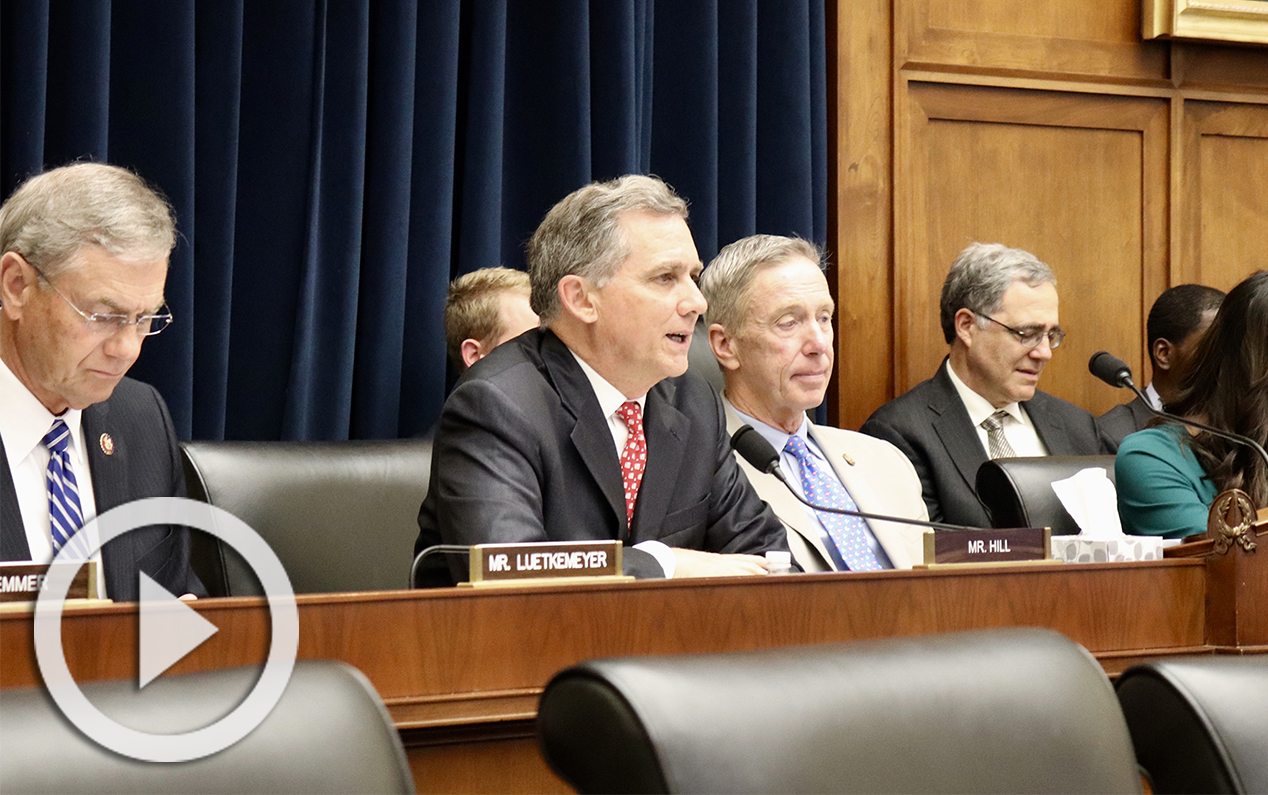WASHINGTON, D.C. — Ranking Member of the House Financial Services Committee Task Force on Financial Technology (FinTech), Congressman French Hill (AR-02), helped lead the newly-formed task force in its first hearing entitled, "Overseeing the FinTech Revolution: Domestic and International Perspectives on FinTech Regulation".
Watch Congressman Hill’s opening remarks from the hearing HERE or by clicking on the image below.
| (Pictured below: Witnesses who participated in Tuesday's first FinTech Task Force hearing included Paul Watkins, Assistant Director, Office of Innovation, Consumer Financial Protection Bureau (CFPB); Beth Knickerbocker, Chief Innovation Officer, Office of the Comptroller of the Currency (OCC); Valerie Szczepanik, Associate Director of the Division of Corporation Finance and Senior Advisor for Digital Assets and Innovation, Securities and Exchange Commission (SEC); Charles E. Clark, Director, Department of Financial Institutions, State of Washington, on behalf of the Conference of State Bank Supervisors (CSBS); and Christopher Woolard, Board Member and Director of Strategy and Competition, Financial Conduct Authority (FCA).) |
 |
Highlights of Congressman Hill's remarks as prepared are copied below.
I look forward to working with my colleagues on both sides of the aisle as well as the regulators to find ways to foster innovation for both disruptive innovators and incumbent financial players, small and large, over the next few months.
In my view, our FinTech Task Force can enhance understanding of the rapidly developing use of "Big Data" and data analytics. This Task Force should be focused on the American consumer as the ultimate beneficiary. Along the way, we will explore the ways and means of customer acquisition and enhancing financial services to the underbanked, all while making compliance less costly and more effective.
When Congress passed the Dodd-Frank Act in response to the 2008 financial crisis, it included thoughtful, necessary provisions for the American consumer, but it also had unintended penalties as a consequence of shifting critical, traditional banking services and functions into the non-banking space. Bank credit availability has suffered since the crisis and many non-bank financial institutions, like private equity firms, SBICs, BDCs, and FinTech companies have grown their market share as a result.
FinTech companies, in particular, have seen significant evolvement the last few years. These companies appeared to be at odds with financial institution incumbents as they were both fighting for market share and business. However, in recent years, both have realized the value the other brings to the table and have started developing mutually beneficial partnerships. Today, we hear more about collaboration rather than disruption. I want to encourage the regulators to promote these partnerships and innovation while also finding ways to reduce the cost of regulatory compliance.
As a former community bank executive, I understand the regulatory burdens associated with onboarding a new vendor and hope the agencies can work together to enhance the process. I understand the importance of banks maintaining a robust level of safety and soundness. With technology constantly changing, banks must ensure they are protecting their customers privacy against cybersecurity hacks and other threats.
This hearing will not only serve as a way for the Task Force Members to learn more about the ways the regulating agencies are promoting innovation, but also as a way for you to hear and learn best practices from each other.
My district houses two accelerator programs at our Venture Center. The two programs are Fidelity Information systems (FIS), a fortune 500 company founded over 50 years ago, that serves as a community bank core processor. And last year the ICBA selected the Venture Center to host its program which is specifically focused on the development of FinTech and community banking partnerships.
During the ICBA program, representatives from prudential regulators traveled to Little Rock to discuss ways they can learn from this innovation center. This is a great example of how best to collaborate by being in the “same room.” We need to ensure these dialogues continue which ultimately allows for better compliance efficiencies, benefits the bank customer, and help services reach the underserved community.




